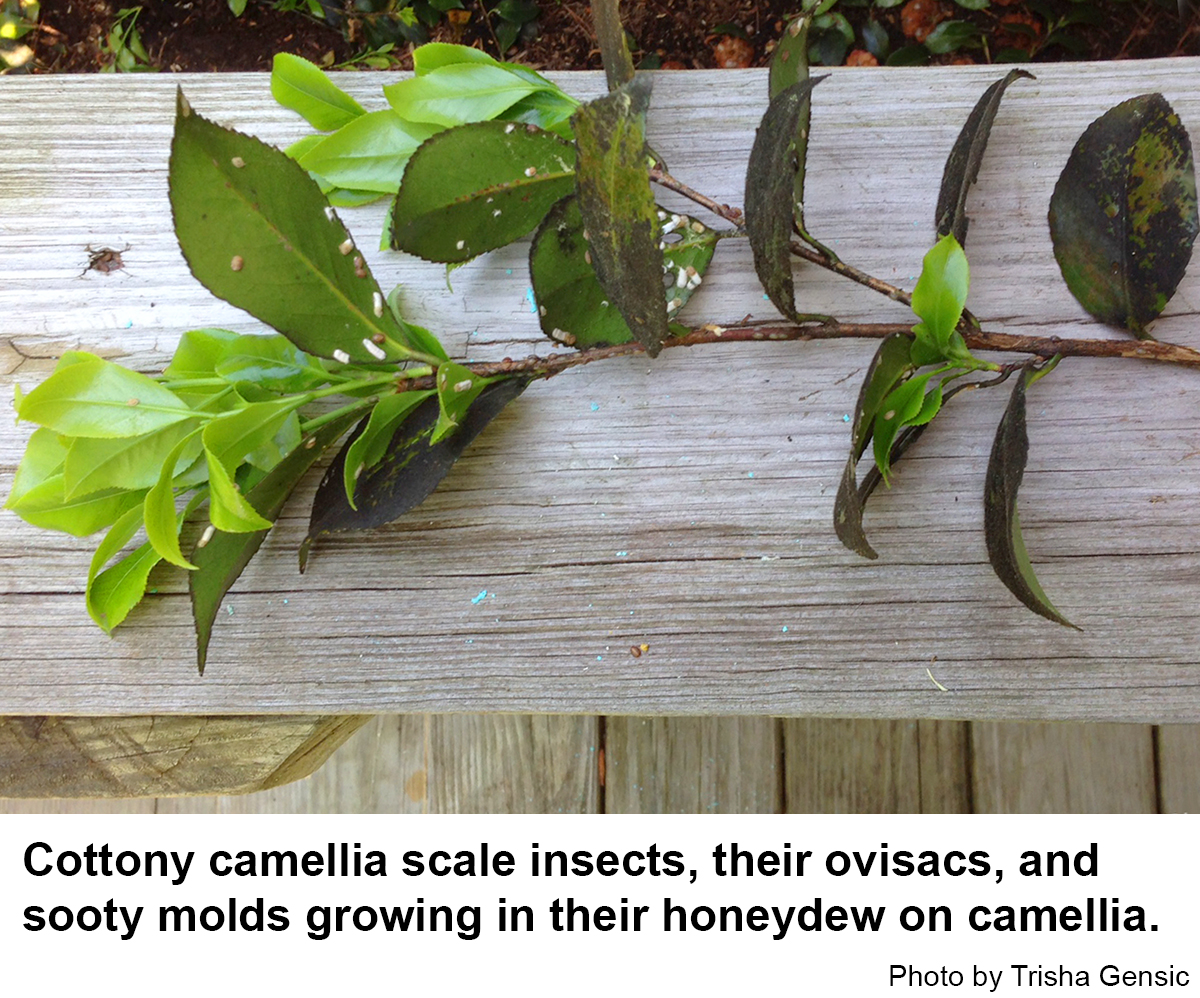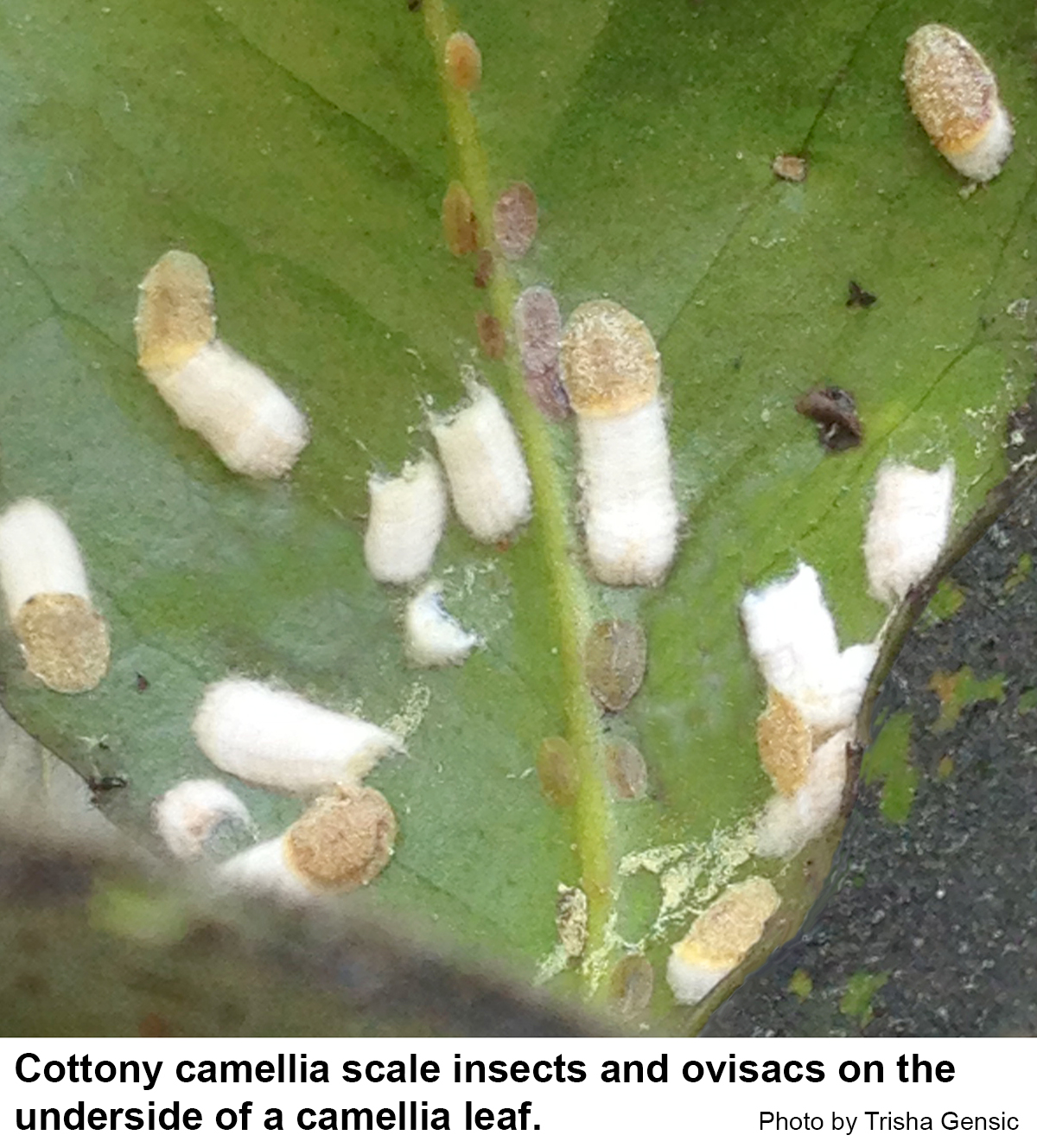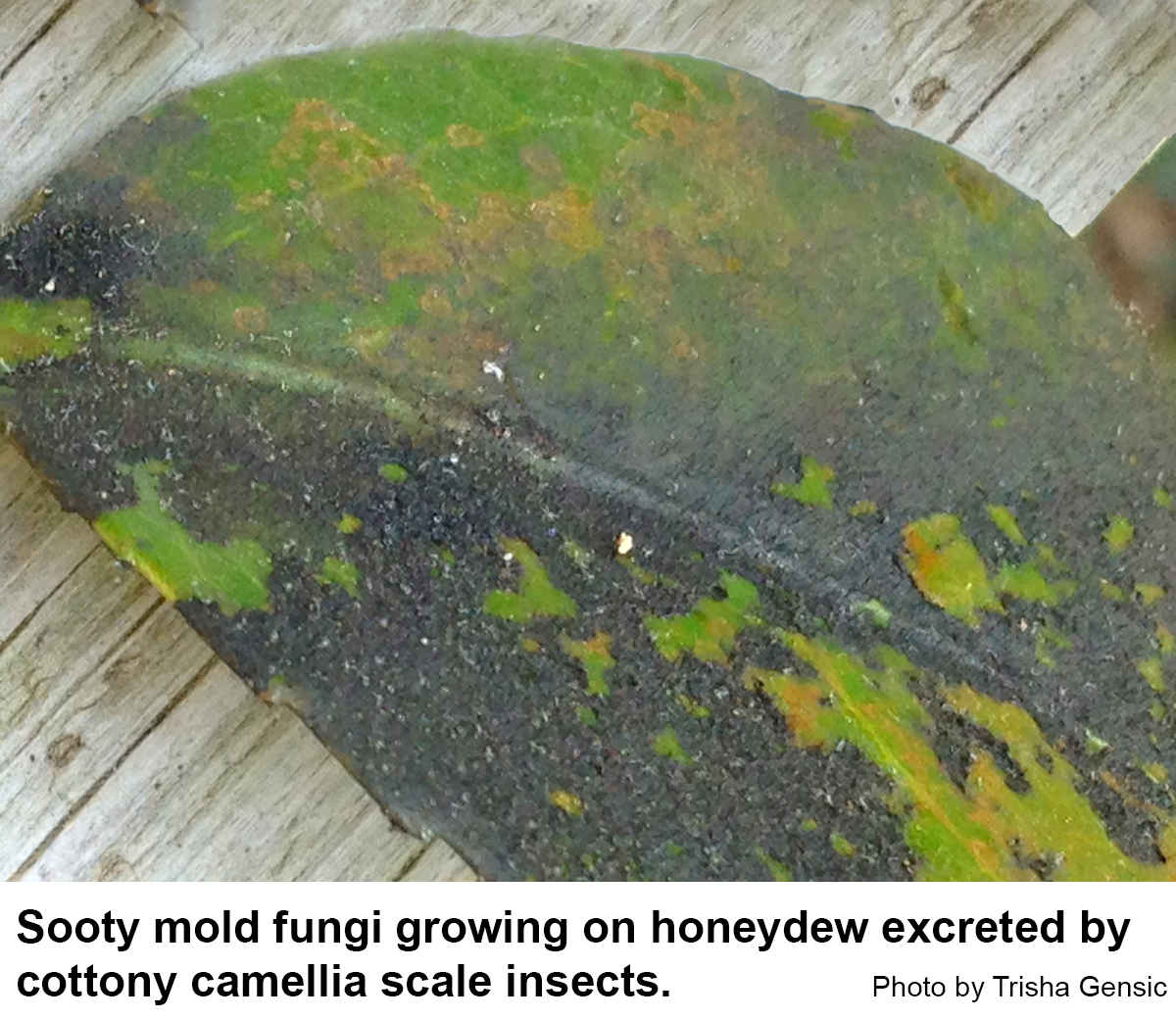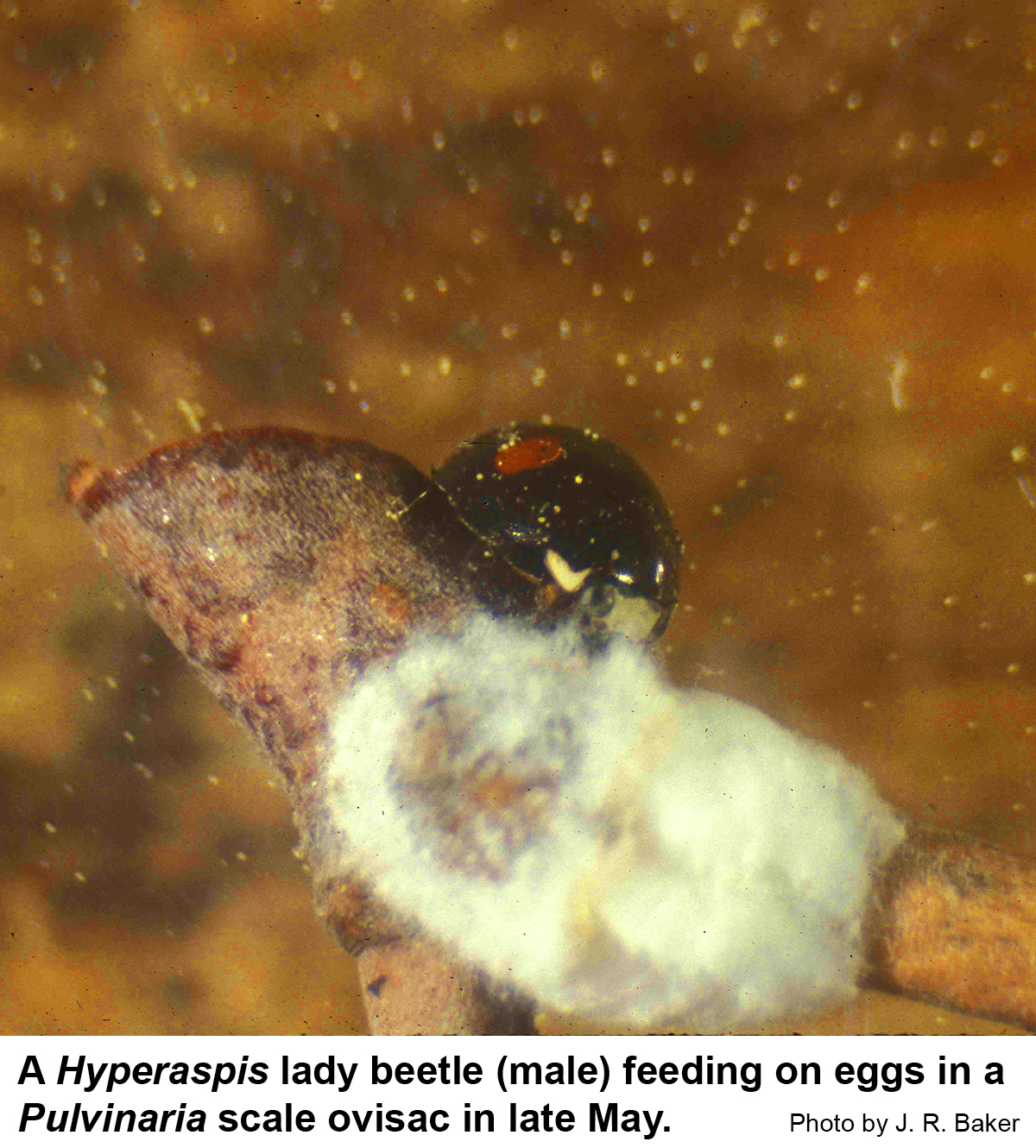Description and Biology
Cottony camellia scales, Pulvinaria floccifera, are cream to tan, elongate oval, and relatively flat. Females grow to about 3/16 to 1/8 inch long. They are also called cottony taxus scales as this scale is a fairly common pest of yew. Young females have a dark stripe down the middle and mottling at the sides. Older scales are dark brown. Eggs are laid in an ovisac produced beneath and behind female. Ovisacs are two or more times longer than the scales and are relatively flat, white, and fluffy. If males are present, they emerge in the fall and mate with females and die (no mouthparts). Females overwinter on twigs or leaves and lay eggs in mid to late spring. The eggs hatch in late May through early June and the tiny new crawlers feed along the veins on the lower leaf surface. Like most soft scales, cottony camellia scales suck out sap and excrete honeydew, a sweet, sticky liquid in which dark sooty molds often grow. There is one generation per year.
Host Plants
Cottony camellia scales infest many types of plants in Florida and the tropics. In North Carolina they seem to be limited to camellias, taxus, Chinese holly and jasmine although it can infest English ivy, euonymous, hydrangea, maple, mulberry, pittosporum, and rhododendron.
Residential Recommendation
June is a good time to spray as the Hyperaspis lady beetles that specialize on feeding within the egg sacs of Pulvinaria scales will have then departed for their aestivating sites. If sprayed earlier, the lady beetles would be killed but not the eggs (The eggs are protected by the waxy ovisac the mother scales secrete during oviposition). Consequently, spraying earlier in the growing season does more harm than good. In June and July, one of the sprayable formulations of Sevin will give wonderful control although the pyrethroids such as permethrin, bifenthrin, and lamda-cyhalothrin should work well, too. When used as directed, pyrethroids are very toxic to insects but are not particularly hazardous to humans and pets (other than fish-avoid using pyrethroids around pools, ponds, and streams). These pesticides are all available in the gardening sections of big box stores as well as retail nurseries and garden centers.
References
- "Cottony camellia scale." Rosetta, R. 2009. Oregon State University. PNW Nursery IPM.
- Cottony Camellia Scale. Talabac, M. (Compiler). 2021. University of Maryland Extension.
- Hyperaspis Lady Beetles. Baker, J. R. 2019 (revised). NC State Extension Publications, PDIC Factsheets.
- Pulvinaria floccifera In Scale Insects: Identification Tools for Scales of Quarantine Importance. Miller, D. et al. 2007. Systematic Entomology Lab. USDA.
- Sooty Molds. Frank, S. D. et al. 2019 (revised). NC State Extension Publications, Entomology Insect Notes.
- The soft scale insects of Florida (Homoptera: Coccoidea: Coccidae). Hamon, A. B. & Williams, M. L. 1984. Arthropods of Florida and Neighboring Land Areas. Fla. Dept. of Agric. & Consumer Serv. Div. Plant Ind., Gainesville. 194 pp.
- Extension Plant Pathology Publications and Factsheets
- Horticultural Science Publications
- North Carolina Agricultural Chemicals Manual
For assistance with a specific problem, contact your local N.C. Cooperative Extension center
This Factsheet has not been peer reviewed.
Publication date: May 7, 2014
Reviewed/Revised: Feb. 20, 2024
Recommendations for the use of agricultural chemicals are included in this publication as a convenience to the reader. The use of brand names and any mention or listing of commercial products or services in this publication does not imply endorsement by NC State University or N.C. A&T State University nor discrimination against similar products or services not mentioned. Individuals who use agricultural chemicals are responsible for ensuring that the intended use complies with current regulations and conforms to the product label. Be sure to obtain current information about usage regulations and examine a current product label before applying any chemical. For assistance, contact your local N.C. Cooperative Extension county center.
N.C. Cooperative Extension prohibits discrimination and harassment regardless of age, color, disability, family and marital status, gender identity, national origin, political beliefs, race, religion, sex (including pregnancy), sexual orientation and veteran status.




